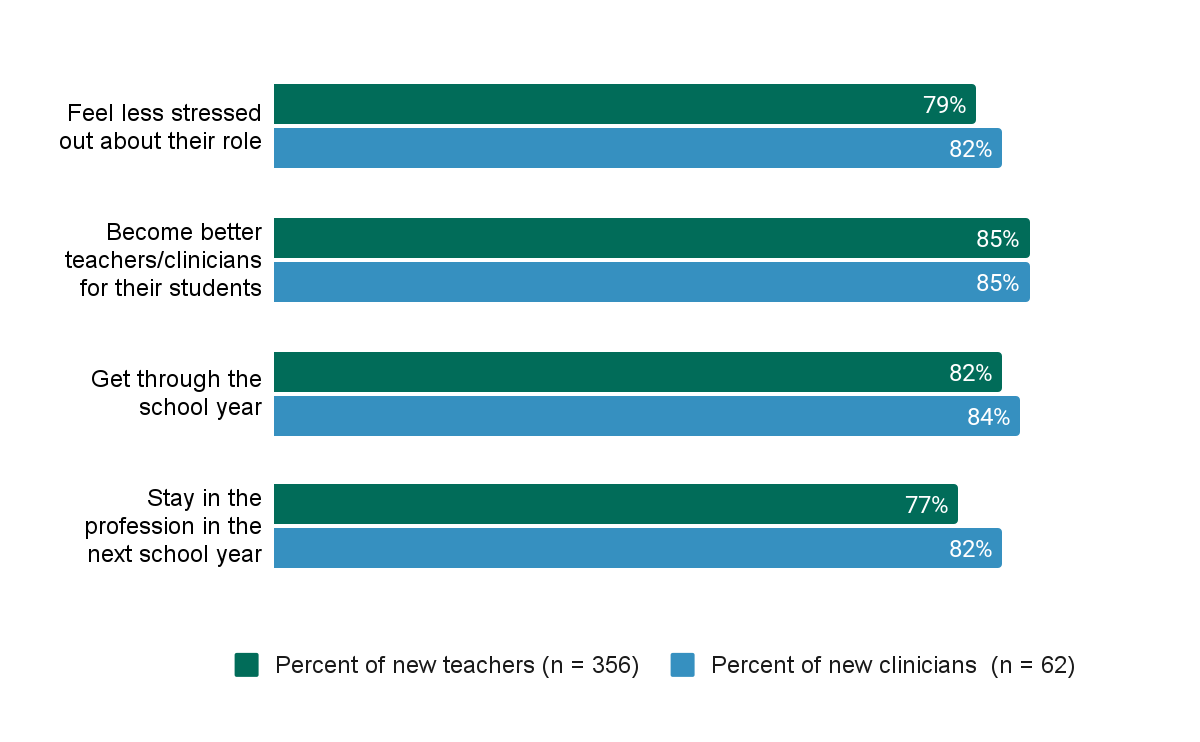The Illinois coaching and mentoring program uses several key strategies to support new teachers and clinicians (e.g., counselors, nurses, social workers, speech-language pathologists). Each participating teacher and most clinicians receive in-person support from a building mentor whose role is to facilitate their integration into the school. In addition, the program matches each teacher and clinician with a virtual coach based on shared teaching or professional assignments (same subject area, grade level, or clinical profession) to receive content-specific and pedagogical coaching. To support virtual coaches and mentors in their respective roles, the program offers virtual forums or webinars facilitated by each union and resources across a range of instructional topics hosted on an online platform.
In the 2023–24 school year, the program is entering its fourth year of implementation, with Digital Promise continuing as the independent research and evaluation partner.
For participating new teachers and clinicians (e.g., counselors, nurses, social workers, speech-language pathologists):
For participating virtual coaches and mentors:
Overall, we found that participation in the program led to positive results for the educator groups in various ways. Below we highlight some key findings at the end of Year 3 and over the course of three years of program implementation.

Source: Evaluation of Illinois Virtual Instructional Coach and Building Mentor Program teacher and clinician surveys, May 2023.
“Getting someone’s undivided attention and perspective to work through problems and workshop solutions, hearing that you’re not alone and others have done this before… makes things more doable. Being able to do this program has helped keep my head above water.” —New Teacher
For more details, see the reports for each evaluation year:
Learn more about the ELP Pilot Mentoring and Coaching Program: